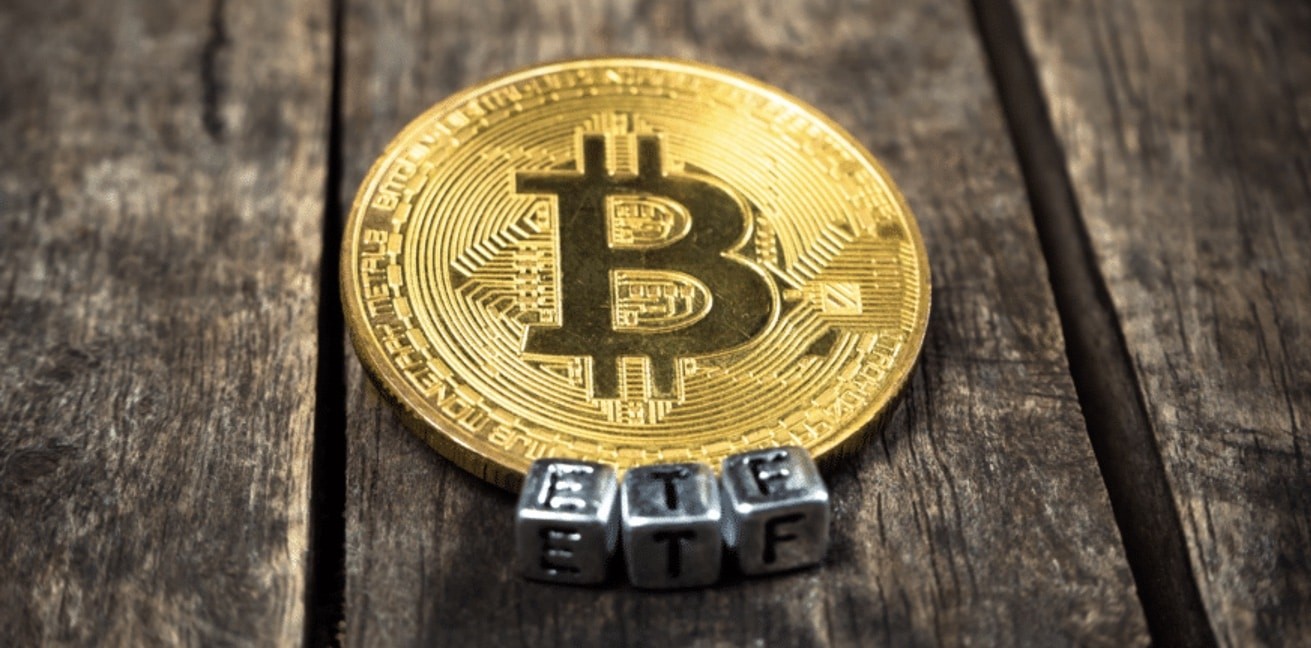Bitcoin Futures ETF is basically an amalgam of two terms, ETF and Bitcoin Futures. ETF, exchange-funded trade, is a tracking instrument that holds multiple assets and speculates an asset’s price changes. In comparison, Bitcoin Futures is a trading instrument that binds the two parties in a contract of trading the asset at a preset price that would not affect future fluctuations.
Bitcoin Futures ETF is an exchange trading fund that tracks and imitates the price of a certain digital asset (in the case of Bitcoin Futures ETF, the underlying asset is Bitcoin), so the price of ETF and bitcoin doesn’t match. Thus the investor can purchase ETF without the need to trade bitcoin.
The first Bitcoin exchange started trading recently but has gone viral in no time as it has proved to be highly beneficial for the market liquidity. Four different Bitcoin Futures ETFs will be launched soon, Valkyrie, Van Eck, ProShares, and Invesco, hoping for this new venture to pave the way for Bitcoin. However, this might not be a piece of good news for retail investors as it is more inclined towards the institutionalization of assets.
How is Bitcoin Futures ETF Benefitting the Digital Market?
The sole purpose of creating this platform was to provide the investor an opportunity to expand their investment exposure. In addition, this venture has also resolved the cons of cryptocurrency.
The futures market has proved to be imperceptive for an ordinary investor. The community itself basically makes it to avoid market volatility making the assets easier to purchase. The client wants ease in trading and managing thus requires a financial advisor. However, in the case of Bitcoin Futures ETF, it establishes bitcoin as an official organization providing the user all the material of a financial advisor at hand.
Moreover, cryptocurrency is a decentralized exchange that is not regulated by any authority, that opens rooms for hacks and potential manipulation. Thus, one hesitates before investing directly in crypto; however, Bitcoin Futures ETF has provided an incentive to those who’re unsure about bitcoin or protecting bitcoin wallet. Commodity Futures Trading Commissions is regulating the Bitcoin Futures ETF. Apart from the conventional trading requirements, CME has its own reporting and surveillance requirements as well along with a penalty for going beyond the regulations.
Why is Bitcoin Futures ETF detrimental to the Investors?
However, there are some factors that one must know before going for it immediately. First, Bitcoin Futures ETF is pricier than directly trading in digital currency.
Second, the concept of settlements before the expiry dates often result in losses for one side, resulting in a contango bleed. The reason for this unstable price prediction is the inefficient price trackers, which are inimical for the ones holding Bitcoin Futures ETF. Thus, firms are very skeptical about this new venture, and the feedback is not as efficient as expected.
Conclusion
Despite all the risks associated with Bitcoin Futures ETF, one must know the crypto market dynamics will always be unpredictable. Therefore, if you trade carefully, keeping track of all the potential risks, you can really generate a profitable income out of this scheme.






